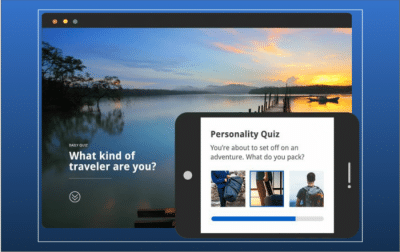Article
Managing Up: What To Do When Your Boss Doesn’t Understand Digital Marketing
August 30, 2016

If you are a digital marketer working for someone without digital experience, Lewise Hiltz feels your pain.
Hiltz, Marigold Engage by Sailthru’s Chief Customer Advocate, started her career in digital marketing twenty years ago, when there were very few people she could learn from. “I started out outbidding search competitors for a penny,” she says. “You could sit there for hours.” At Canadian retailer Reitmans, Hiltz was the first digital employee, and eventually built a digital team of 50 people.
It’s not just Hiltz: she’s found in her experience that nearly half of all digital marketers work for a vice president of marketing whose experience is exclusively in traditional marketing.
At Marigold Engage by Sailthru, of course, Hiltz works with an organization who are all digital-obsessed and digitally-experienced. But her years of experience in the early days of digital marketing have given her unique insights — insights into the challenges of managing expectations, managing up, and changing mindsets. Here’s her advice.
How do you educate a manager who hasn’t worked in digital marketing? It’s not as if you can hand them a textbook.
LEWISE HILTZ: Lead the discussion with facts. As you’re presenting the facts, their wheels will start spinning and they’ll ask questions. Then you can guide them through more questions, and to the answer you want.
If you can show a return on ad spend, that’s key.
You also need to dissect your boss’s personality. You may have a micromanager, who wants to understand every little detail because they’re so afraid their boss or colleagues may ask a question that they can’t answer. Other bosses may Just want the hero points.” Once you understand who you’re dealing with, you can manage more effectively.
Aren’t there likely to be basic differences in approach, as well?
LEWISE HILTZ: Digital marketing is just as much about retention as acquisition, but traditional marketing has always been more about acquisition. It’s hard to manage from a retention standpoint when there’s always been an acquisition mindset. This is theoretically a ten-year thing, and your manager might not have the same heart for it.
How do bosses usually respond to a direct report who clearly knows more than they do in this area?
LEWISE HILTZ: You have to be careful, because you can be perceived as arrogant. More commonly, they’re threatened by you. Traditional marketers that are in charge of digital teams are concerned about their relevancy. Nine times out of ten they get pushed out.
If you want to keep your job, you need to make your boss feel relevant. Otherwise they will push back at you, and your projects will not happen. Let them shine in front of their boss. More projects get completed when you focus as a team anyway.
In the long term, is there any hope for this relationship?
LEWISE HILTZ: Your boss may not have the expertise you want them to have, but he or she may be a strong manager or have other skills you can learn from. At Reitmans, my management had many other strengths, especially in helping me manage through politics. Play to your boss’s strengths as they play to yours. If you can find the right partner, then it works.
How do you deal with traditional guidelines, like brand standards?
LEWISE HILTZ: You have to be able to get your manager to think outside of the box without completely losing the brand voice. What’s important is conversion, not conformity. People get uncomfortable with that, but it helps greatly to run a test. It’s hard to dispute data, when people see the numbers, it will work in your favor.
What mistakes do digital marketers commonly make in working with their non-digital bosses?
LEWISE HILTZ: Information overload is a big one. You can’t just walk in and start speaking digital. You’ll start talking about click through rates and they’ll look at you like you have ten heads, because half of what they do in traditional marketing cannot be measured. You can’t just say you’re going to get five-to-one back on ad spend. They will have a hard time to believe it. You have to let them deal with that period of disbelief first. If you skip over that, you’ve shot yourself in the foot.
If you say, “I have this great predictive marketing I can do in email and it’s going to cost half your budget, let’s do it tomorrow,” it scares the hell out of people. As Digital Marketers we tend to get caught up in the passion of it. You have to remember that in traditional marketing, campaigns tend to take longer to complete… i.e. you might spend a month just talking to the printer.
How do you get traditional marketers comfortable with speed?
LEWISE HILTZ: Test, test and more testing. Then there will be a period of time to analyze the data, figure out how it fits in with other programs, and talk about the process going forward. Then the test becomes the revelation, rather than the fact that you have the ability to flip something on its head tomorrow.
The hard part is balancing that with how quickly things need to move from a digital perspective. But your boss doesn’t know how long you’re going to test for. It could be a day, it could be an hour.
Bottom line is ease them into it!
The State of Brand Loyalty in the U.S. in 2023
Related



